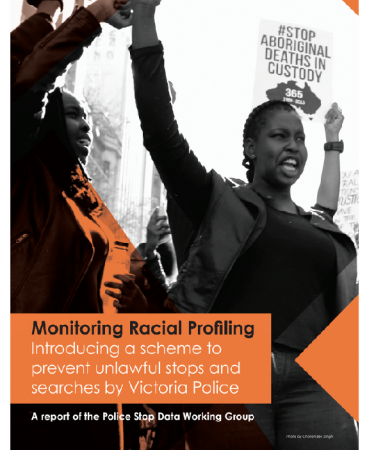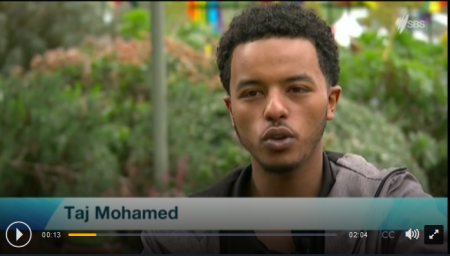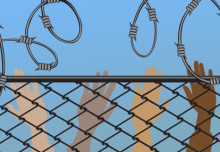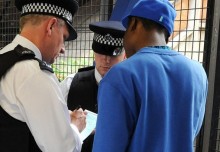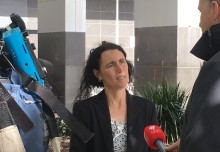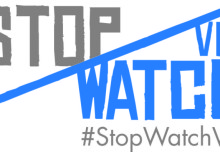6 September 2017
Victoria Police must take urgent steps to monitor racial profiling by members in police stops – the call from experts in a new report released today.
“Victoria Police have introduced policies against racial profiling, but do not have any measures in place to track ongoing race-based stops by police,” said report lead author, Tamar Hopkins.
The report by a coalition of academic experts, commissioned by Flemington & Kensington Community Legal Centre, has found that introducing a scheme to collect and publicly report on data about police stops is a critical first step in reducing disproportionate stops of people of colour and unlawful stops by police.
Lawyers from the Police Accountability Project at Flemington & Kensington Community Legal Centre say they regularly hear from young people who are targeted by police based on their race.
“I have been stopped by police on six occasions in the past six months,” said youth worker, Barry Berih.
“On one occasion four police stopped me in my car on my way to work and said it was a routine check. After breathalysing me, searching my car and disposing of medication I had in the glove box, they continued on without explanation.”
“This weekend police stopped me when they saw me leave my house and get into my car in North Melbourne and again asked for my ID. When I asked why, they said it was because my car “could be stolen”. They also made my friends in the car provide identification, even though they weren’t doing anything. Just for sitting in my car.
“I have been stopped so many times by police who say they are checking me to make sure that my car is not stolen that now I think I will just stop driving,” said Mr Berih.
“My friends and I are regularly stopped by police and by PSOs at train stations, without reason,” said Taj Mohammed, “Sometimes they talk about ‘matching the description of a suspect’, which really just means being black.”
“Once you have the data, patterns emerge and action can be taken,” said Ms Hopkins.
“Data and public accountability make police practices transparent and facilitate the external and internal pressure needed to bring Victoria Police’s racial profiling ban into practice,” said Dr Victoria Sentas, academic expert on criminal law and policing.
“We know through court proceedings that Victoria Police have stopped young African men at more than two and a half times the rate that they have stopped their white counterparts, despite these young people being under represented in the crime statistics,” said race relations expert, Dr Clare Land.
“Despite Victoria Police four years ago committing to looking at the information gathered from police stops, there is still no data collection and no public reporting in place. This is already in practice in many other jurisdictions internationally. It’s urgent, achievable, and necessary that it happen here,” said La Trobe University Lecturer in Crime, Justice and Legal Studies, Dr Raul Sanchez Urribarri.
The report also recommends that the government legislate to require that police have a reasonable justification before stopping and investigating people “This legislation would re-enforce Victoria Police’s own policy ban on the practice,” said Ms Hopkins.
“Through focusing police attention on providing a reasonable justification for stopping individuals and publicly reporting those justifications and the race of who is stopped, the scheme creates a public accountability mechanism to reduce the use of stereotyping in police stops,” said Ms Hopkins.
Download a copy of the report here (PDF).
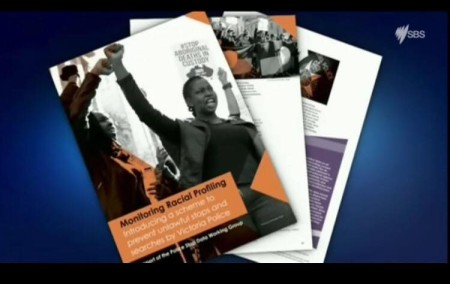
Hard copies of the report are available upon request.
Download a copy of the report here (PDF)
VIDEO: Increased data collection may reveal racial profiling. Luke Waters, SBS News, 6 September 2017
Victoria police should record perceived ethnicity of everyone they stop, says legal rights group, Melissa Davey, Guardian Australia, Wednesday 6 September 2017
“Racial profiling is a form of biased and discriminatory policing, and its implications and impacts of racial profiling are profound,” the report, compiled by a coalition of academic experts known as the Police Stop Data Working Group, states…
“The Monitoring Racial Profiling report was commissioned by the Flemington and Kensington Community Legal Centre and recommended the government legislate to require police have a reasonable justification before stopping and investigating people…
Police forces urged to collect data on ‘racial profiling’, SBS World News radio, 6 September 2017
“In Victoria, police claim they have “zero tolerence” for racial profiling, but have no method of accurately measuring whether the practice still takes place. Nineteen year-old law student Taj Mohamed is of Sudanese origin and regularly commutes on Melbourne’s busy rail system…
Background
Collection of data on the race of people stopped is the critical tool in understanding and preventing racial profiling. It now occurs in the UK, Europe, Canada and the US.
Social psychologist Dr. Philip Atiba Goff, cofounder and President of the Center for Policing Equity in the United States, says, “You can’t fix a problem if you can’t first measure it.”
According to the Ontario Human Rights Commission (OHRC) Chief Commissioner Barbara Hall “Race-based data collection is an important tool that can help police both respond to allegations of racial profiling and provide bias-free services.”
Despite Victoria Police publicly stating its ‘zero tolerance for racial profiling’, our centre’s African clients still report multiple and regular traffic and street stops by police. Its normal but they are absolutely sick of it.
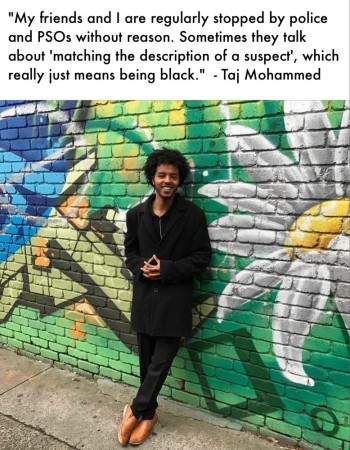
NEW REPORT: Monitoring Racial Profiling
Introducing a scheme to prevent unlawful stops and searches by Victoria Police
Acknowledgements:
A report of the Police Stop Data Working Group
Primary researcher and author: Tamar Hopkins
Members of Working Group (in alphabetical order):
- Professor Janet Chan (UNSW),
- Professor Chris Cunneen (UNSW),
- Tamar Hopkins (PhD candidate ANU)
- Dr Clare Land (Victoria University)
- Dr Raul Sanchez-Urribarri (La Trobe University),
- Dr Victoria Sentas (UNSW)
- Associate Professor Leanne Weber (Monash)
The Police Stop Data Working Group would like to thank Sally Reid (Victoria Equal Opportunity and Human Rights Commission), Islamic Council of Victoria, Maki Issa, Daniel Haile-Michael, Flemington & Kensington Community Legal Centre, Kot Monoah, Dr Berhan Ahmed (African Think Tank), Leanne Sargent and David Broderick (Victoria Police), Clyde Sharady (African Media Association), Nesam Macmillan (Melbourne University) and Fiona Dowsley (Victoria Crime Statistics Agency) for their advice at various stages of this report. Thanks to the working group for its detailed comments, suggestions and debate on a topic that is an emerging area of inquiry in Australia. This work incorporates and is enriched by the working group members’ comments and suggestion
This report and its recommendations represent the views of the Police Stop Data Working Group
Secretariat: Lauren Caulfield, Police Accountability Project, Flemington & Kensington Community Legal Centre

